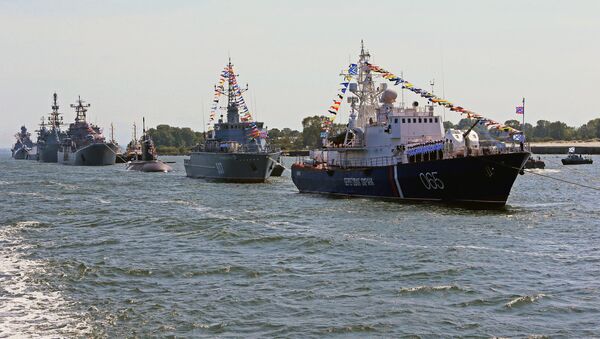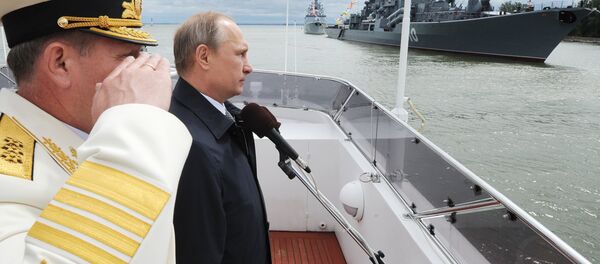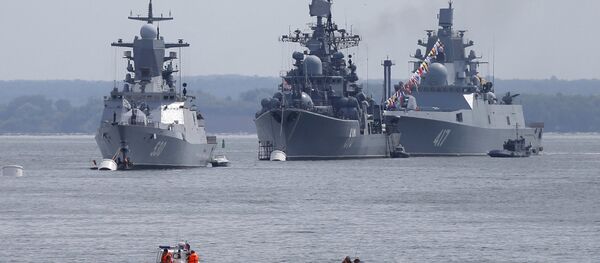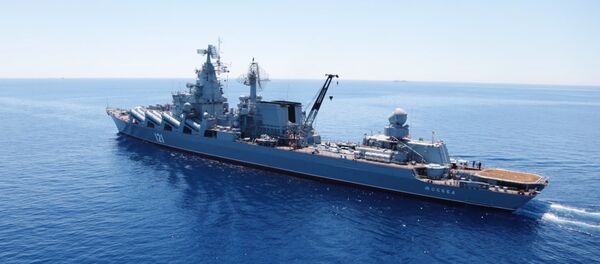BALTYISK (Kaliningrad Region) (Sputnik) – Russia’s new maritime doctrine will lay the legal foundation for maritime activities, Deputy Prime Minister Dmitry Rogozin said Sunday.
“We expect work to roll out in the near future to draft legislation on public administration of maritime activity on the basis of the maritime doctrine,” Rogozin said.
"The president announced today that he approved the Maritime Doctrine," Rogozin told reporters.
According to the deputy prime minister, the amendments to the doctrine are the result of the changes in the political situation in the world.
"The reasons for the adoption of the new doctrine are changes in the international political situation and the objective strengthening of Russia as a great naval power," Rogozin said
He added that the new law will coordinate and consolidate works between the Russian federal government’s Marine Board and local maritime councils.
The newly amended version of the doctrine calls for the "provision of sufficient Russian naval presence in the Atlantic Ocean."
“In the Black and Azov seas, the bases of national maritime policy are the accelerated recovery and comprehensive strengthening of Russia’s strategic positions, [as well as] the maintenance of peace and stability in the region,” according to the doctrine.
The regional section of Russia’s national maritime policy calls for “ensuring sufficient naval presence of the Russian Federation in the [Mediterranean] region on a permanent basis.”
As part of the strategic framework, the doctrine also calls for the improvement of the Black Sea Fleet and its infrastructure in Crimea and coastal Krasnodar Territory.
Independent shipbuilding made its first appearance in the new Maritime Doctrine as part of Russia’s national marine policy.
Rogozin linked the new shipbuilding section to the growth of this industry in Russia over the past 10-15 years on a par with the Soviet era.
Russia has been pressing ahead with efforts to develop its Arctic territories, including hydrocarbon production and development of the Northern Sea Route, which is gaining importance as an alternative to traditional routes from Europe to Asia. The country has also boosted its military presence in the area.
Dmitry Rogozin said in April that Russia was going to invest 222 billion rubles ($4.3 billion) in its Arctic development program in 2015-2020.





